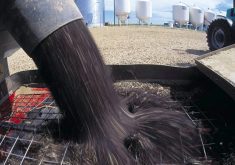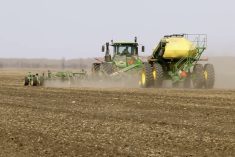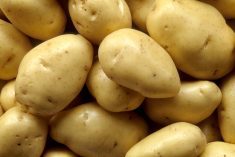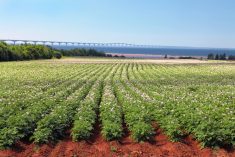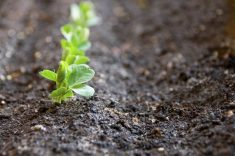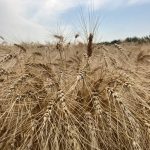In an attempt to support its potato farmers following trade suspensions with the U.S. over potato wart, the government of Prince Edward Island plans to put up $3 million in new funding for a program that will help farmers shift to “soil-building crops.”
“In our meetings with industry and the P.E.I. Potato Board, the need for additional supports for our seed sector were identified, specifically so that those growers can assess and address alternative crops as they deal with ongoing trade suspensions,” provincial Agriculture Minister Bloyce Thompson said last week in a release.
Read Also
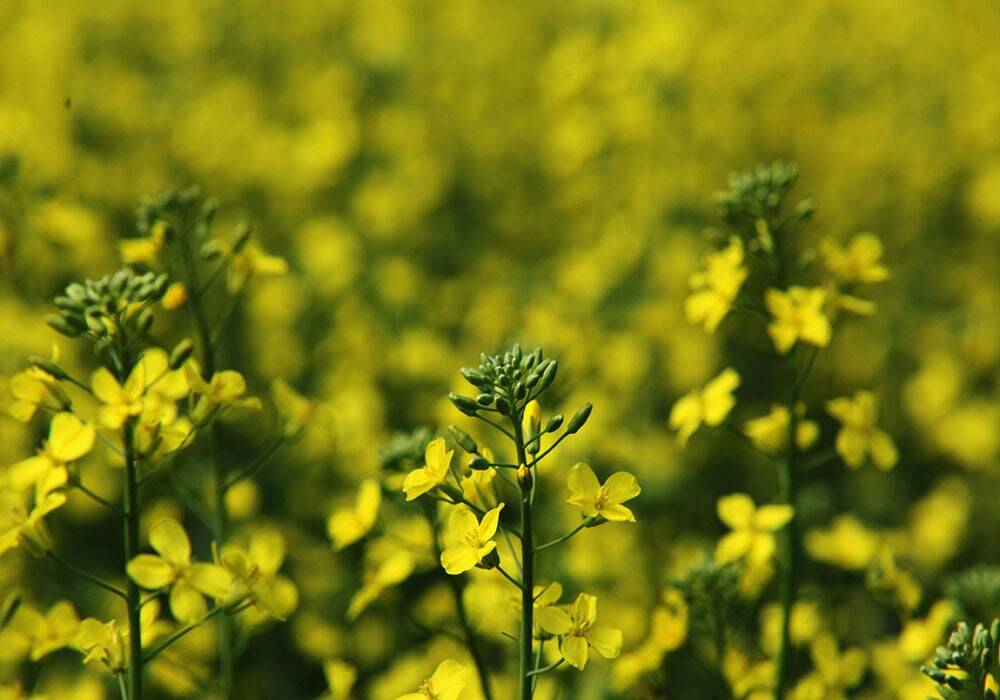
Canola industry pumped about 45Z clean fuel ruling in U.S.
Canada’s canola sector is pleased with the new 45Z guidance published by U.S. Treasury.
Eligible seed potato growers who put land into soil-building crops or extended perennial crops under the program can qualify for $1,000 per acre of land established into those crops. Acres eligible for the payment are limited to a grower’s reduction in seed potato area only.
The program, called the “Soil Building for Seed Producers Project,” aims to help seed potato producers in beneficial management practices (BMPs) until decisions are made about ongoing trade suspensions.
Eligible BMPs involve incorporating soil-building crops into rotations and/or extending rotations with soil-building perennial crops.
Approved soil-building crops newly incorporated into rotations under the program can include annual as well as perennial crops — and must also have at least a three-star ranking for building soil organic matter, as ranked by the Cover Crop Tool for Eastern Canada.
For the BMP in which a grower extends rotations with soil-building perennial crops, an existing soil-building perennial crop must remain growing for a second full rotation year.
That is, fields are eligible only if the extended perennial crop in question — such as timothy, clover or alfalfa — had already been established the previous rotation year, so the perennial crop can’t be terminated until the spring of 2023.
The field’s rotation must otherwise include annual crops within it and must not be a long-term forage field, pasture or fallow land.
The P.E.I. Potato Board “is very pleased to work with the province on the development of this project, as our seed growers still face a lot of uncertainty and challenges for 2022 and beyond,” board chairman John Visser said in the same release.
P.E.I. has over 83,000 acres of land dedicated to the production of potatoes and is Canada’s No. 1 potato producer, according to a study on the economic impact of potatoes in Canada.
Both table stock potatoes and seed potatoes from P.E.I. were banned from export to the mainland U.S. in November last year following a few new cases of potato wart confirmed in fields in the province. The ban on table stock potato exports was lifted April 1 this year but seed potato exports remain blocked.
According to Statistics Canada, P.E.I. seed potato exports to the U.S. were valued at $2.79 million in 2020, down from just over $3.1 million in 2018 and 2019. The province’s total seed potato exports worldwide in 2020 were valued at $5.29 million, up from $4.5 million in 2019 and $4.97 million in 2018.
— Liam O’Connor reports for Glacier FarmMedia from Saskatoon.





